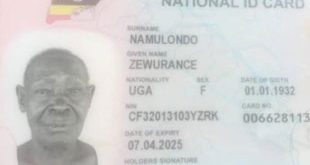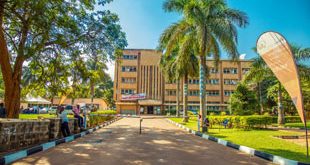
Lira, Uganda | THE INDEPENDENT | Secondary school teachers in Lira are excited about the introduction of a new curriculum for lower secondary classes.
In February 2020, the National Curriculum Development Center (NCDC) rolled out a new secondary education curriculum aimed at meeting the learners’ needs especially in regards to skills enhancement and training.
According to the revised new curriculum that has 21 subjects, a teacher is simply meant to be the facilitator of learning, which indicates that learners are expected to contribute to their learning with guidance.
Both government schools and privately owned are expected to offer 12 subjects in Senior One and Two, out of which 11 are compulsory and only one is optional.
Senior Three and Four will exist with a minimum of eight subjects and a maximum of nine, seven of them compulsory. Also, classroom teaching has been reduced to five hours a day with lessons starting at 8:30 am and ending at 2:50 pm.
This will allow learners to engage in more research, games and sports to have time for revision for at least two hours. The school day ends at 4:30 pm.
In Lira, training teachers about the new curriculum was halted last year following the outbreak of the Covid-19 pandemic.
During the sensitization on how the curriculum will be implemented, teachers in Lira have welcomed the curriculum.
Anna Mary Apio, a teacher at Rachele Comprehensive Secondary School believes that the new curriculum will help students apply the skills acquired directly unlike in the past where students are trained to pass exams.
Morris Nyangkol, a teacher from Mentor SS Akwoyo Campus explained that the new curriculum is the best since it will involve student participation and application of what they learn.
Philip Oketcho, a curriculum specialist at the NCDC says that the new curriculum will give time for teachers to get committed to their work. He says that the government thought it wise to equip learners with practical knowledge which is more suitable for the current job market rather than theories.
Oketcho asked all stakeholders to embrace the successful implementation of the curriculum.
Last year, the Ministry of Education said that more than 7,000 teachers did not take part in the teacher training exercise ahead of the curriculum.
According to preliminary results from the Ministry of Education, many teachers were denied to take part in the training because their schools do not have Uganda National Examinations Board-UNEB centre numbers.
In February last year, Parliament halted the implementation of the revised lower secondary curriculum, on grounds that some vital subjects had been made optional and that there were not sufficient consultations.
********
URN
 The Independent Uganda: You get the Truth we Pay the Price
The Independent Uganda: You get the Truth we Pay the Price


